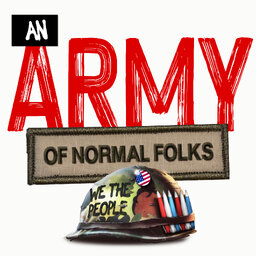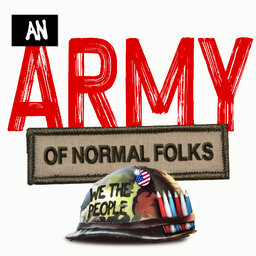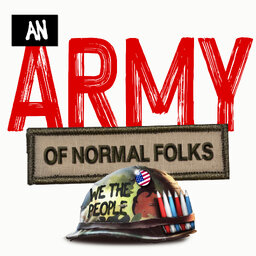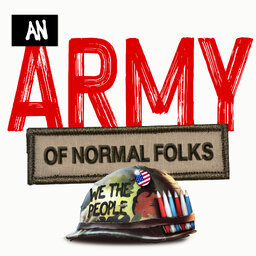Dr. Rhonda Smith: I Use Your Podcast in My Classes! (Pt 2)
Professor Rhonda has assigned listening to and reflecting on our podcast to over 400 of her college students. And just wait until you hear her story that led to an extraordinary life of purpose.
In 1 playlist(s)
An Army of Normal Folks
Our country’s problems will never be solved by a bunch of fancy people in nice suits talking big wor…Social links
Follow podcast
Recent clips

What If We Stopped Treating People Like Mascots? (Pt 1)
39:18

What If We Stopped Treating People Like Mascots? (Pt 2)
1:00:46

We Don’t Need More Heroes. We Need More Bowling Leagues
13:43
 An Army of Normal Folks
An Army of Normal Folks